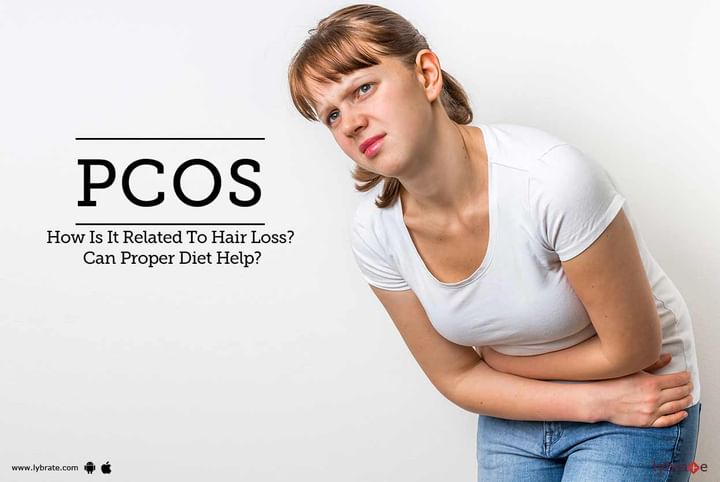PCOS - How Is It Related To Hair Loss? Can Proper Diet Help?
PCOS, also known as the Polycystic Ovarian Syndrome is a condition that affects women of reproductive age (usually between 12-45 years). True to its name, PCOS is a hormonal disorder characterized by the formation of cysts in the ovary (one or both the ovaries). Androgen, the male sex hormone is produced in small amounts by the ovary. In PCOS, there is an increased production of androgens. The levels of estrogen and progesterone (female sex hormones) also undergo alteration. All these hormonal imbalance affects the functioning of the ovary as well as the ovulation process (the eggs either don't mature or are not released from the ovary).
PCOS and Hair Loss
In the case of PCOS, in addition to the menstrual and fertility problem, many females also suffer from severe hair loss.
There are three phases in a hair growth cycle-
- Anagen, a phase where active hair growth takes place.
- Catagen, a phase indicative of the transitional growth of hair.
- Telogen or the resting phase characterized by shedding of hair.
In PCOS, there is an increased production of androgen or testosterone. The testosterone then gets converted to another hormone called the Dihydrotestosterone (DHT). The DHT thus formed binds itself to the hair follicles. As a result of this, the hair follicles abruptly enters into the resting phase, characterized by hair loss. The DHT when it binds to the hair follicles is also known to affect the ability of the hair follicles to absorb the essential nutrients.The PCOS left untreated, this process gets repeated in each hair growth cycle with increased hair loss and hair thinning. The hair regrowth and regeneration also slows down, a condition termed as Androgenic Alopecia.
The PCOS also triggers an insulin resistance. As per a study by the University of Oulu in Finland, incidences of alopecia is higher in women with insulin resistance, resulting in hair loss.
Dietary Recommendation To Deal With PCOS-related Hair Loss
In PCOS, the DHT hormone binds to the hair follicle resulting in the hair loss. In addition to the medications and maintaining a healthy body weight, a proper diet can go a long way to reverse the damage, thereby controlling the hair loss. However, one needs to have patience as you cannot expect the diet to produce miraculous results within a day.
- Enrich your diet with green leafy vegetables. High fiber vegetables can help to deal with insulin resistance to a great extent.
- Lean proteins such as tofu, chicken, are healthy options.
- Foods with low glycemic index (such as non-starchy vegetables, quite a few fruits, lentils, peas, legumes, barley, to name a few) work wonders in the case of PCOS and the associated symptoms. It also helps to deal with insulin resistance and high glucose levels, one of the factors responsible for hair loss.
- The unhealthy foods options that should be avoided at all cost, include highly processed foods such as pastries, white bread, sugar, white potatoes.
- Avoid foods rich in simple sugars or those with a high glycemic value.



+1.svg)
